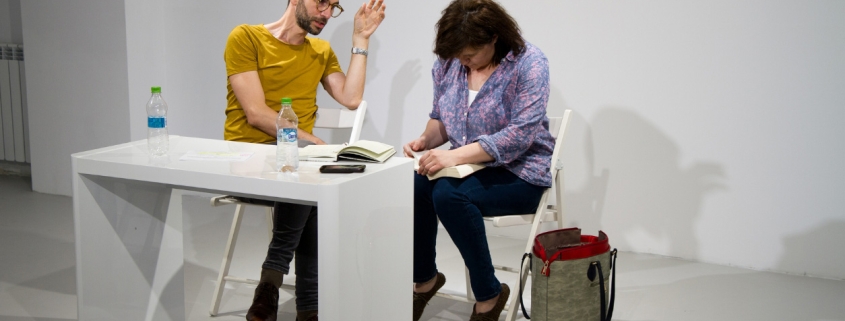TALENT IS NOT DEMOCRATIC,
ART IS NOT A LUXURY
Liliana Basarab
Curator: Cătălin Gheorghe
STATEMENT
In agitated times of reconsiderations, when the artist’s status is discredited, recovered, defamed, rehabilitated, when its avatar is seen as an entrepreneur, activist, animator, insurgent, when democracy is always “taken back” from one egocratic oligarchy to another, when art is seen as a commodity, a state of mind, an entertainment, a form of social participation, a luxury in trend, a vocation to fight back to the repression’s recrudescence of the system, everyone still believe in lessons, but not necessary can trust without hesitation in the moral sense of any tale.
In this case, Liliana Basarab inverts the parable of the Aesop’s fable “The Grasshopper and the Ant”, reinterpreted in so many versions in history and being so known through its rewriting by Jean de la Fontaine, questioning the status of the artist and the value of its labour, most often unrecognized, in relation with the functioning of the ideology of distribution in the context of the illusion of accumulation through the “honest work” of the others. It is known that a series of counter-fables describe the ant habit to gather its supplies after the work of others. But this is not the flee composition of the project mise en scene at Borderline Art Space.
Also involved in educational actions with children, Liliana Basarab reacts critically and creatively to the common contents, and most often unquestioned, of the moral lessons depending on which the personality development of the children is projected in the system of knowing how the social relations are built.
In relation with the invisible labour, and with the difficulties induced in the perception of the majority to recognize art performance as labour, the way to educate the understanding of the social value of the creative effort can be reconsidered. If an artist can be in a situation that someone imputes that she is perfectly guilty of the effects of the austerity’s winter, being punished that she didn’t exemplarily mobilized herself to shape and administer her entrepreneurial profile, then, besides her motivation, instinct, duty to make art as critical representation of reality, she had to politically self-represent to argue her right to be understood in the logics she assumed. The artist’s labour is in production, in politics and in bearing its consequences.
„Winter is coming”.

